29 Oct2021
By Kimberly White Smith and Jacob Easley II
This op-ed originally appeared in Diverse Issues in Higher Education and is reprinted with permission.

Kimberly White-Smith and Jacob Easley
I love America more than any other country in the world and, exactly for this reason, I insist on the right to criticize her perpetually. – James Baldwin
The momentum of social and racial justice fueled by recent events finds us at a significant crossroad with divergent paths—one path opening to opportunity and one leading to entropy. The approach we choose to follow will affect society and the lives of many for generations to come. Should we choose the way of opportunity, we must seriously grapple with the debates and our commitment to preserving a true democracy. Should we select the other, we accept the deterioration of hard-earned civil rights—choosing to abdicate to systems, laws, and politics that have historically disadvantaged those unable to make a living wage and people of color. As deans of educator preparation programs who work closely with the nation’s two largest school districts (New York City Department of Education and Los Angeles Unified School District), we understand the relevance of education. It is the core vehicle for liberatory practice and for championing American democracy. If education is the road to national mobility, and we believe it is, we must preserve the mechanisms and freedoms to critique and examine the governing structures of our society.
26 Oct2021
By AACTE

The Consortium for Research-Based and Equitable Assessments (CREA) at the American Association of Colleges for Teacher Education has released its first report, The History, Current Use, and Impact of Entrance and Licensure Examinations Cut Scores on the Teacher of Color Pipeline: A Structural Racism Analysis. The CREA project, funded by the Bill & Melinda Gates Foundation, engages 14 states in examining their cut score setting process for entrance examinations into teacher preparation programs. The recent report chronicles the history of teacher preparation entrance and exit assessments and their impact on the diversity of candidates pursuing teaching as a profession.
The report’s author, Leslie T. Fenwick, AACTE dean in residence (who is also a former School of Education dean), discusses in detail the intentional misuse of entrance licensure examinations after the Brown v. Board of Education (BOE) decision in 1954. According to Fenwick, there is a little-known history associated with how licensure examinations were created after Brown to block integration of Black teachers into desegregating schools:
25 Oct2021
By Shea Kerkhoff, Shannon Tanghe and Tara Mathien
Our world is changing rapidly as cultures, ideas, conflicts, and viruses transcend borders. The global pandemic COVID-19 highlighted the multitude of ways the world is interconnected socially, technologically, environmentally, economically, and politically. Local-level responses alone have not been enough to mitigate the virus. The World Health Organization and United Nations have called for global coordination, information sharing, and most importantly, global solidarity to solve the crisis. As such, COVID-19 also illustrates the importance of globally competent teaching to build global solidarity, combat xenophobia, understand global systems, cut through misinformation, learn from other countries, and respond with empathy. Globally competent teaching prepares students to communicate and collaborate across borders in an effort to solve global challenges.
Figure 1. Created by authors in Piktochart.

25 Oct2021
By Stephen R. Levine
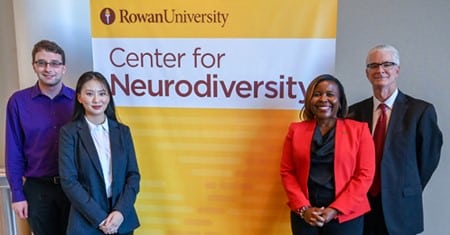
From left, Ben Wilner, Terry Nguyen, Monika Williams Shealey, and John Woodruff, director, Accessibility Services
This article originally appeared on the Rowan Today news website and is reprinted with permission.
On October 20, Rowan University announced an expansion of support and services, establishing a first in New Jersey Center for Neurodiversity on the Glassboro campus.
Rowan’s expansion of services for neurodiverse students stems directly from President Ali A. Houshmand’s commitment to access and inclusion throughout the University.
25 Oct2021
By Jane E. West and Kaitlyn Brennan
 This blog post is written by AACTE consultant Jane West and is intended to provide updated information. The views expressed in this post do not necessarily reflect the views of AACTE.
This blog post is written by AACTE consultant Jane West and is intended to provide updated information. The views expressed in this post do not necessarily reflect the views of AACTE.
As you will recall, in July the House Appropriations Committee approved the FY 2022 Labor, Health and Human Services, Education, and Related Agencies appropriations bill . The bill included historic increases for education from the FY 2021 level—a 41% increase for the Department of Education, which would bring the Department’s total budget to $102.8 billion. This week, a bit unexpectedly, Senate Appropriations Committee Chair Patrick Leahy (D-VT) released drafts of the nine remaining fiscal year (FY) 2022 Senate appropriations bills, including the Labor-HHS-Education bill. This is an unusual move, as we usually don’t see bills until they have gone through the Subcommittee markup. These drafts have not been approved by either Subcommittees or the full committee. Rather, they are intended to be a marker to keep the process rolling.
22 Oct2021
By Jane Fusco
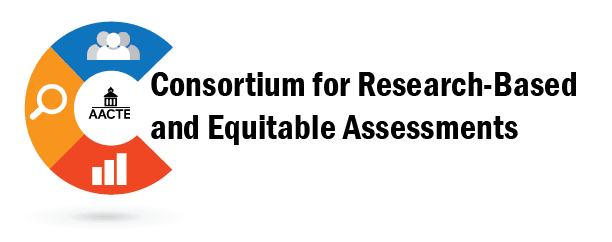
The University of Rhode Island’s Alan Shawn Feinstein College of Education and Professional Studies will represent the state as a lead institution in the American Association of Colleges for Teacher Education’s Consortium for Research-Based and Equitable Assessments, an initiative funded by the Bill and Melinda Gates Foundation that engages 14 states in a study of state-level tests and qualifying scores for entry into educator preparation programs.
URI will collaborate with the Rhode Island Department of Education, Rhode Island College, Central Falls School District, and Pawtucket School Department to examine state data and practices, as well as engage in quarterly convenings to inform guidelines and recommendations for setting qualifying cores for educator preparation program entry and exit.
18 Oct2021
By Jacob Easley II

The New York Association of Colleges for Teacher Education (NYACTE) is hosting its annual conference jointly with the New York State Association of Teacher Education. The 2021 conference is entitled Educational Innovation for Equity and Excellence. Progressively delivered in a virtual format September 30 through November 2, all events are free of charge. It is not too late to join us for an interactive member presentation that will take place on October 21 from 1:00-3:00 p.m. EST. In addition, asynchronous (pre-recorded) paper presentations are also available.
The conference highlights the ways in which New York educator preparation programs (EPPs) and PK-12 engage in partnerships and innovations for advancing educational equity. The conference addresses ways in which state level policy and local practices address programming for greater outcomes among diverse student populations and school communities. The conference concludes with our keynote speaker Elaine Gross, who will challenge the profession in its efforts for racial justice.
14 Oct2021
By Rachel Walker Bowman
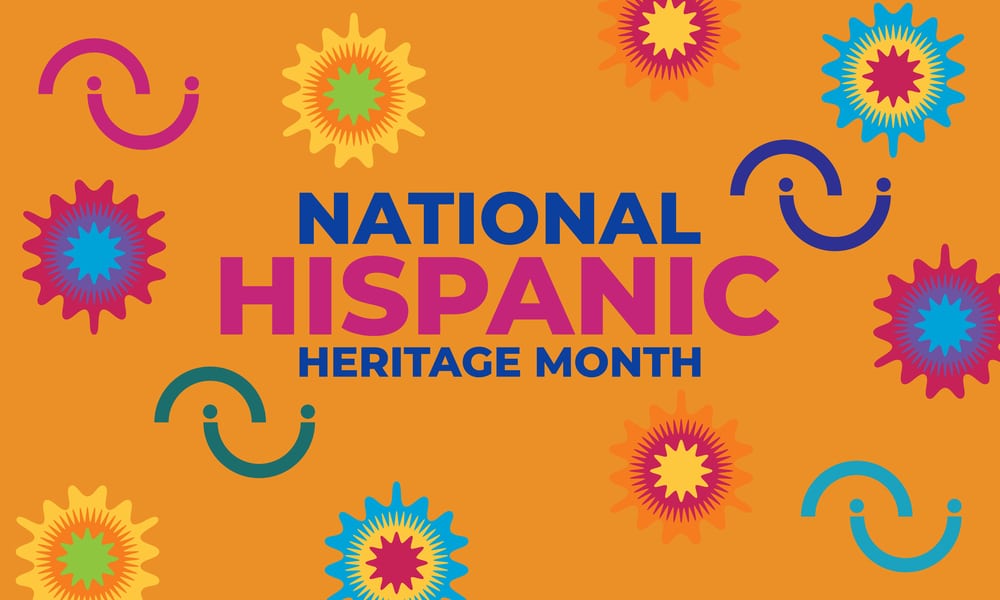
When Mildred Boveda, associate professor of special education at Penn State University, was filling out some basic forms required for an academic appointment, she came to a question that made her pause:
Which of these best describes your race/ethnicity?
- White/ Non-Hispanic
- Black/ Non-Hispanic
- Hispanic
The list went on.
Boveda, an Afro-Latina woman of Dominican descent and complex intersecting identities, had always felt more at home in the Black community. But the erasure of her Latina roots, even just through a checkmark, was not something she could reconcile with.
She checked Hispanic.
07 Oct2021
By Katrina Norfleet
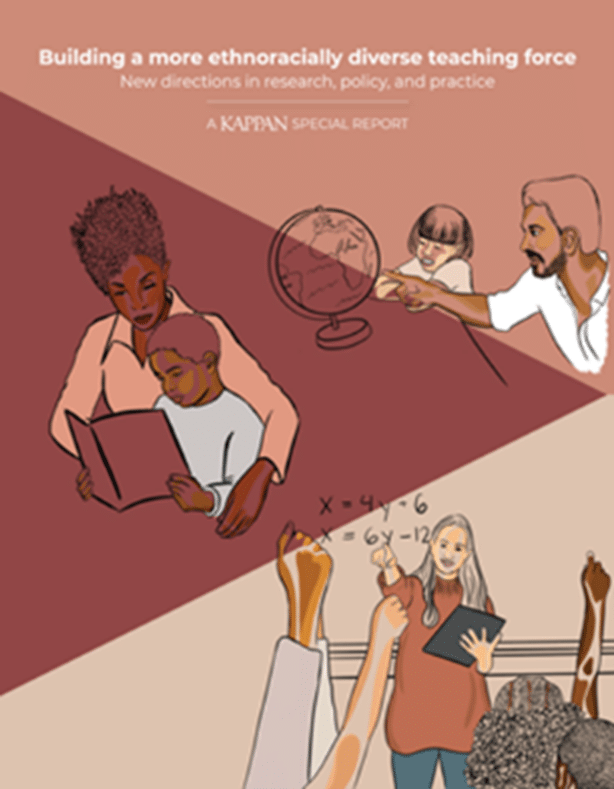 Phi Delta Kappan (PDK) recently released a special report about teacher workforce diversity, Building a more ethnoracially diverse teaching force: New directions in research, policy, and practice, guest edited by AACTE members Conra Gist (University of Houston) and Travis Bristol (University of California, Berkeley). The special report highlights the forthcoming Handbook of Research on Teachers of Color (AERA, 2022) by Gist and Bristol, featuring research by Black, Indigenous, and People of Color (BIPOC) educators on developing a more diverse teacher workforce.
Phi Delta Kappan (PDK) recently released a special report about teacher workforce diversity, Building a more ethnoracially diverse teaching force: New directions in research, policy, and practice, guest edited by AACTE members Conra Gist (University of Houston) and Travis Bristol (University of California, Berkeley). The special report highlights the forthcoming Handbook of Research on Teachers of Color (AERA, 2022) by Gist and Bristol, featuring research by Black, Indigenous, and People of Color (BIPOC) educators on developing a more diverse teacher workforce.
The Kappan report provides brief overviews of the 11 domains of inquiry that are explored in greater length in the handbook by Gist and Bristol, along with a wide range of contributors. To bring Teachers of Color, Indigenous Teachers, and other educators into the conversation about how best to diversify the teaching profession, each domain pairs research briefs with teacher-written testimonies. The domains of inquiry include the following:
06 Oct2021
By Nicole Dunn
 As of September 25, 2021, there are 11 states—Arizona, Florida, Georgia, Idaho, Iowa, New Hampshire, Oklahoma, South Carolina, Texas, Tennessee, Utah—that have passed restrictions on racial justice education in public K-12 schools. As programs that prepare educators to enter classrooms during this current onslaught of education censorship, it is imperative to ensure they are prepared to balance the harsh realities of these bills with their abilities to affirm student identities by teaching a curriculum that is a full and accurate representation of our nation’s history across disciplines.
As of September 25, 2021, there are 11 states—Arizona, Florida, Georgia, Idaho, Iowa, New Hampshire, Oklahoma, South Carolina, Texas, Tennessee, Utah—that have passed restrictions on racial justice education in public K-12 schools. As programs that prepare educators to enter classrooms during this current onslaught of education censorship, it is imperative to ensure they are prepared to balance the harsh realities of these bills with their abilities to affirm student identities by teaching a curriculum that is a full and accurate representation of our nation’s history across disciplines.
AACTE invites you to join “Black Lives Matter at School ‘Year of Purpose’” in a national day of action to #TeachTruth about structural oppression on George Floyd’s birthday, Thursday, October 14. This day of action is co-sponsored by the African American Policy Forum and is supported and endorsed by the Zinn Education Project (a project of Rethinking Schools and Teaching for Change), National Education Association, Alliance for Quality Education, NYU Metropolitan Center for Research on Equity and the Transformation of Schools, and NYC Coalition for Educational Justice.
22 Sep2021
By Weade James
 The Consortium for Research-Based and Equitable Assessments (CREA) is seeking your help to recruit teacher candidates, teachers, and faculty for its upcoming focus groups. The Consortium, which is comprised of educator preparation programs (EPPs) and state and local education agency representatives across 14 states, is examining the processes and considerations that states use to determine cut scores for entrance (i.e., Praxis Core) and teacher licensure examinations.
The Consortium for Research-Based and Equitable Assessments (CREA) is seeking your help to recruit teacher candidates, teachers, and faculty for its upcoming focus groups. The Consortium, which is comprised of educator preparation programs (EPPs) and state and local education agency representatives across 14 states, is examining the processes and considerations that states use to determine cut scores for entrance (i.e., Praxis Core) and teacher licensure examinations.
Through data collection of key stakeholders, analysis of trends and policies, and shared learning, the Consortium will produce recommendations and guidelines to establish equitable criteria for setting qualifying scores and model state policies that promote equity and diversity in the profession.
17 Sep2021
By Rangel Zarate
This article is a personal reflection of the 2021 Holmes Policy Institute by attendee Rangel Zarate.
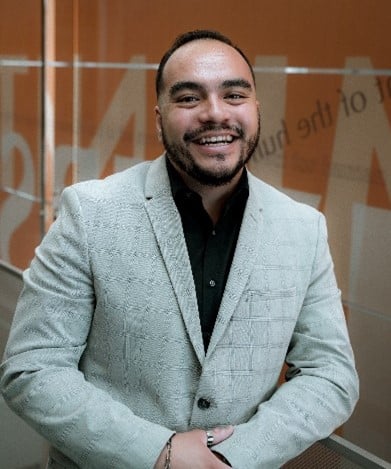 This year’s AACTE Holmes Policy Institute was rich with memorable discussions about culturally-relevant care, digital technology in the classroom, and equity issues in schools.
This year’s AACTE Holmes Policy Institute was rich with memorable discussions about culturally-relevant care, digital technology in the classroom, and equity issues in schools.
The year 2021 has led to an unexpected metamorphosis in education and has forced many instructors and educational leaders to rethink the way they approach student learning and their own teaching practices. In our conference panel discussion, “Advancing Educational Equity Post-COVID” AACTE staffer and associate professors at Columbia University’s Teachers College Deltra Price-Dennis and Yolanda Sealey-Ruiz invited us to reflect on our own thoughts surrounding this new culture of change in educational institutions.
01 Sep2021
By Ward Cummings
 The Ohio Department of Education recently announced the Diversifying the Education Profession Grant Awardees, 20 school districts that will work over two and a half years to implement strategies to address the diversity needs within their faculty and staff.
The Ohio Department of Education recently announced the Diversifying the Education Profession Grant Awardees, 20 school districts that will work over two and a half years to implement strategies to address the diversity needs within their faculty and staff.
According to the Ohio Department of Education, the state has significantly more minority students than minority teachers in its public schools. Ample research shows that teachers of color help students of color perform better academically, socially, and emotionally, and the benefits translate into higher test scores, increased likeliness of staying in school, and lower likeliness of chronic absences and discipline incidents.
17 Aug2021
By Carol Stinnett
This article originally appeared on the UCF Today and is reprinted with permission.
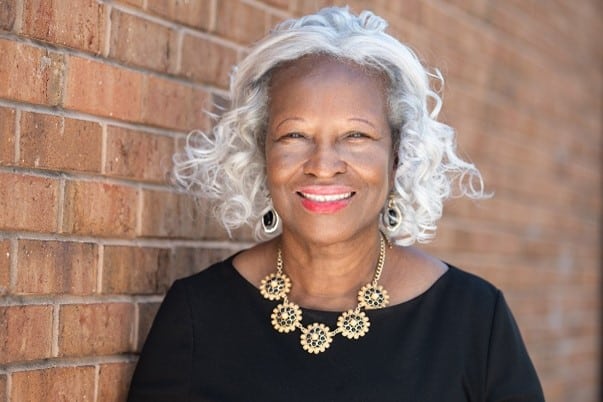 Martha Lue Stewart, the first Black woman promoted to the rank of professor at UCF, retired on August 7. (Photo by Amy Floyd)
Martha Lue Stewart, the first Black woman promoted to the rank of professor at UCF, retired on August 7. (Photo by Amy Floyd)
If one word could encapsulate the journey that Martha Lue Stewart has had at UCF, it’s grateful. As the professor submitted grades for her final course last week and packed up the books, photos and other mementos in her office, she reminisced on countless stories.
As the first Black woman promoted to the rank of professor at UCF, Stewart has been instrumental in helping build a diverse and inclusive campus. Early on, she served as chair of the Diversity Programming Committee that organizes events like Diversity Week. Stewart was also actively involved in the Black Faculty and Staff Association, where she served as president from 1998–99. Her first service project with the association involved launching the university’s first Martin Luther King, Jr. Celebration.
“I enjoyed having a place where I could meet other colleagues of color,” she says. “It felt like a family and that’s amazing.”
17 Aug2021
By Rebecca Koenig

Graduates of Call Me MISTER: Photo by Patrick Wright, Clemson University, Photographic Services-University Relations.
This article originally appeared in EdSurge and is reprinted with permission.
When Alphonso Richard Jr. walked into his first teacher education course at Clemson University, he experienced a shock.
“Being in a class where you’re the only male, I didn’t know where to sit,” he says. “Girls were looking like, ‘Oh my goodness, is that a guy in here?’”
Compounding the confusion: Most women in the room were white, and Richard is Black. The dissonance was enough to send a shiver of doubt through the aspiring educator’s mind.
“It was a scared, hesitant feeling at first,” Richard says. “Am I meant to be here? Is this for me?”
It takes courage to enter a space where you’re not sure you belong. That’s the kind of threshold that Black men training to become educators have to cross many times. They make up only 2 percent of U.S. public school teachers (men overall compose 24 percent). They’re also underrepresented in college teacher-preparation programs, as education is “one of the least diverse major fields in higher education,” according to a 2019 report from the American Association of Colleges for Teacher Education.










 This blog post is written by AACTE consultant Jane West and is intended to provide updated information. The views expressed in this post do not necessarily reflect the views of AACTE.
This blog post is written by AACTE consultant Jane West and is intended to provide updated information. The views expressed in this post do not necessarily reflect the views of AACTE. 


 Phi Delta Kappan (PDK) recently released a special report about teacher workforce diversity, Building a more ethnoracially diverse teaching force: New directions in research, policy, and practice, guest edited by AACTE members Conra Gist (University of Houston) and Travis Bristol (University of California, Berkeley). The special report highlights the forthcoming Handbook of Research on Teachers of Color (AERA, 2022) by Gist and Bristol, featuring research by Black, Indigenous, and People of Color (BIPOC) educators on developing a more diverse teacher workforce.
Phi Delta Kappan (PDK) recently released a special report about teacher workforce diversity, Building a more ethnoracially diverse teaching force: New directions in research, policy, and practice, guest edited by AACTE members Conra Gist (University of Houston) and Travis Bristol (University of California, Berkeley). The special report highlights the forthcoming Handbook of Research on Teachers of Color (AERA, 2022) by Gist and Bristol, featuring research by Black, Indigenous, and People of Color (BIPOC) educators on developing a more diverse teacher workforce. As of September 25, 2021, there are 11 states—Arizona, Florida, Georgia, Idaho, Iowa, New Hampshire, Oklahoma, South Carolina, Texas, Tennessee, Utah—that have passed restrictions on racial justice education in public K-12 schools. As programs that prepare educators to enter classrooms during this current onslaught of education censorship, it is imperative to ensure they are prepared to balance the harsh realities of these bills with their abilities to affirm student identities by teaching a curriculum that is a full and accurate representation of our nation’s history across disciplines.
As of September 25, 2021, there are 11 states—Arizona, Florida, Georgia, Idaho, Iowa, New Hampshire, Oklahoma, South Carolina, Texas, Tennessee, Utah—that have passed restrictions on racial justice education in public K-12 schools. As programs that prepare educators to enter classrooms during this current onslaught of education censorship, it is imperative to ensure they are prepared to balance the harsh realities of these bills with their abilities to affirm student identities by teaching a curriculum that is a full and accurate representation of our nation’s history across disciplines. The
The  This year’s AACTE Holmes Policy Institute was rich with memorable discussions about culturally-relevant care, digital technology in the classroom, and equity issues in schools.
This year’s AACTE Holmes Policy Institute was rich with memorable discussions about culturally-relevant care, digital technology in the classroom, and equity issues in schools. The Ohio Department of Education recently announced the Diversifying the Education Profession Grant Awardees,
The Ohio Department of Education recently announced the Diversifying the Education Profession Grant Awardees,  Martha Lue Stewart, the first Black woman promoted to the rank of professor at UCF, retired on August 7. (Photo by Amy Floyd)
Martha Lue Stewart, the first Black woman promoted to the rank of professor at UCF, retired on August 7. (Photo by Amy Floyd)